 Your new post is loading...
 Your new post is loading...
Introduction The brain is part of the central nervous system and its primary function is to transmit neuron signals all throughout the entire body. The neuron signals make sure that not only the body is functioning, but that the heart is beating regularly, the gut is digesting the food, blood pressure and the feeling sensations are normal. When there are unwanted pathogens that attach themselves to the neuron signals and travel to the brain, can develop into neurodegenerative diseases over time. Luckily there are therapeutic ways to dampen the effects of neurodegenerative diseases and one of them is low laser light therapy. In this 2 part series, we will be taking a look at how light therapy can be beneficial for individuals that are suffering from neurodegenerative diseases. Part 1 took a look at how different microbial infections are involved in neurodegeneration to the brain. By referring patients to qualified and skilled providers who specialized in neurological services. To that end, and when appropriate, we advise our patients to refer to our associated medical providers based on their examination. We find that education is the key to asking valuable questions to our providers. Dr. Jimenez DC provides this information as an educational service only. Disclaimer Can my insurance cover it? Yes, in case you are uncertain here is the link to all the insurance providers we cover. If you have any questions, please call Dr. Jimenez at 915-850-0900. Low-Laser Therapy For The Brain Seeing how neurological and neuropsychiatric diseases are degenerative in nature that are characterized by protein aggregation, there are novel methods to treat protein aggregation and downstream issues since the human body utilizes light energy to catalyze chemical reactions and help dampen the effects of protein aggregation. This is referred to as “photobiomodulation” or low laser therapy. Low laser therapy has endogenous molecules that have different absorption peaks throughout the electromagnetic spectrum, thus resulting in different physiological effects: - Melanin (~340nm)
- Unbound hemoglobin (~430nm)
- Water (~1900nm)
- Reduced mitochondrial Cytochrome C (~605nm)
Studies have found that low laser therapy when applied to the forehead and scalp areas of an individual with traumatic brain injury has helped improve cognitive function in the brain. By altering human physiology with light is a potent therapeutic for numerous conditions as the common “therapeutic range” of laser wavelengths for treating disease is from ~600nm to 1000nm. These wavelengths readily penetrate tissues while hitting disease-relevant biological targets. General Disclaimer * The information herein is not intended to replace a one-on-one relationship with a qualified health care professional, licensed physician, and is not medical advice. We encourage you to make your own health care decisions based on your research and partnership with a qualified health care professional. Our information scope is limited to chiropractic, musculoskeletal, physical medicines, wellness, sensitive health issues, functional medicine articles, topics, and discussions. We provide and present clinical collaboration with specialists from a wide array of disciplines. Each specialist is governed by their professional scope of practice and their jurisdiction of licensure. We use functional health & wellness protocols to treat and support care for the injuries or disorders of the musculoskeletal system. Our videos, posts, topics, subjects, and insights cover clinical matters, issues, and topics that relate to and support, directly or indirectly, our clinical scope of practice.* Our office has made a reasonable attempt to provide supportive citations and has identified the relevant research study or studies supporting our posts. We provide copies of supporting research studies available to regulatory boards and the public upon request. We understand that we cover matters that require an additional explanation of how it may assist in a particular care plan or treatment protocol; therefore, to further discuss the subject matter above, please feel free to ask Dr. Alex Jimenez or contact us at 915-850-0900. Dr. Alex Jimenez DC, MSACP, CCST, IFMCP*, CIFM*, ATN* email: coach@elpasofunctionalmedicine.com Licensed in: Texas & New Mexico*
Introduction In the central nervous system, the brain’s primary function is to make sure that the neuron signals it’s producing are being transmitted all throughout the body. These neuron signals help with motor function, digestion function, and immune function by making sure that the entire systems inside the body are working properly. When there are neurodegenerative factors that enter the body and attach to the neuron signals, they can be disruptive and cause the brain to develop chronic issues that can make the body be dysfunctional. This is known as cognitive decline and it can range from being mild to severe over time. In this article, we will be taking a look at what is cognitive decline, its symptoms, and ways to reverse cognitive decline from progressing further in the brain. By referring patients to qualified and skilled providers who specialized in neurological services. To that end, and when appropriate, we advise our patients to refer to our associated medical providers based on their examination. We find that education is the key to asking valuable questions to our providers. Dr. Alex Jimenez DC provides this information as an educational service only. Disclaimer Can my insurance cover it? Yes, in case you are uncertain here is the link to all the insurance providers we cover. If you have any questions, please call Dr. Jimenez at 915-850-0900. What Is Cognitive Decline? In a normal functioning brain, it does naturally decline with age while still retaining all of its functions that make the body move, see, digest, and remember events that it went through. However, when there are disruptors that attach themselves to the neuron signals and travel through the brain, it can cause a person to momentarily forget or not retain new information. This is known as cognitive decline and research studies have found that cognitive decline can make a person frequently forget important information or conversations. This will also lead to symptoms of dementia or even Alzheimer’s disease if the cognitive decline continues to progress over time. The Symptoms Research shows that the many symptoms and risk factors of cognitive decline if it is not treated, can further progress cognitive degeneration until it turns chronic. As stated, the brain ages naturally causing shrinkage while maintaining information, but for a mild cognitive impairment, the brain will shrink as well but will not retain the information. Some of the symptoms and risk factors that cognitive decline cause to the brain are: General Disclaimer * The information herein is not intended to replace a one-on-one relationship with a qualified health care professional, licensed physician, and is not medical advice. We encourage you to make your own health care decisions based on your research and partnership with a qualified health care professional. Our information scope is limited to chiropractic, musculoskeletal, physical medicines, wellness, sensitive health issues, functional medicine articles, topics, and discussions. We provide and present clinical collaboration with specialists from a wide array of disciplines. Each specialist is governed by their professional scope of practice and their jurisdiction of licensure. We use functional health & wellness protocols to treat and support care for the injuries or disorders of the musculoskeletal system. Our videos, posts, topics, subjects, and insights cover clinical matters, issues, and topics that relate to and support, directly or indirectly, our clinical scope of practice.* Our office has made a reasonable attempt to provide supportive citations and has identified the relevant research study or studies supporting our posts. We provide copies of supporting research studies available to regulatory boards and the public upon request. We understand that we cover matters that require an additional explanation of how it may assist in a particular care plan or treatment protocol; therefore, to further discuss the subject matter above, please feel free to ask Dr. Alex Jimenez or contact us at 915-850-0900. Dr. Alex Jimenez DC, MSACP, CCST, IFMCP*, CIFM*, ATN* email: coach@elpasofunctionalmedicine.com Licensed in: Texas & New Mexico*
Introduction The brain is part of the central nervous system where its main function is to send out neuron signals all throughout the body in a bidirectional connection as it sends the information back. When there are unwanted pathogens that disrupt the neuron signals, it can cause the entire body to be dysfunctional and cause unwanted problems to the brain, gut, musculoskeletal, and immune system. Through the use of functional neurology, many healthcare providers have found ways to help individuals by dampening the effects of neurological disorders from progressing further. In this 2 part series, we will be taking a look at what is functional neurology, its relationship with functional medicine, and how functional neurology can help dampen the effects of neurological disorders. In Part 2, we will take a look at what is ALS and how functional neurology diagnoses ALS. By referring patients to qualified and skilled providers who specialized in neurological services. To that end, and when appropriate, we advise our patients to refer to our associated medical providers based on their examination. We find that education is the key to asking valuable questions to our providers. Dr. Alex Jimenez DC provides this information as an educational service only. Disclaimer Can my insurance cover it? Yes, in case you are uncertain here is the link to all the insurance providers we cover. If you have any questions, please call Dr. Jimenez at 915-850-0900. What Is Functional Neurology? So functional neurology is a branch of medicine that deals with disorders of the nervous system. Functional neurology deals with the diagnosis and treatment of all categories of conditions and diseases involving the central and peripheral nervous systems, including their coverings, blood vessels, and all effector tissue, such as muscle. Studies have found that functional neurology is one of the many specialties that are within the world of chiropractic practices. Within chiropractic practice, many chiropractors will start manipulating the spine on patients causing a sense of relief on the spinal nerves. When the spinal nerves are disrupted it causes an imbalance to the nerve output in the body, thus resulting in an unhealthy body and chronic neurological disorders will develop over time. What Is Functional Medicine? Functional medicine is system biology that is based on an approach and focuses on identifying and addressing the root cause of disease. Since each symptom or differential diagnosis may be one of many
contributing to an individual’s illness. Research studies show that functional medicine is represented as a therapeutic partnership between the patient and the practitioner that focuses on the underlying causes of many diseases from a systems biology perspective. General Disclaimer * The information herein is not intended to replace a one-on-one relationship with a qualified health care professional, licensed physician, and is not medical advice. We encourage you to make your own health care decisions based on your research and partnership with a qualified health care professional. Our information scope is limited to chiropractic, musculoskeletal, physical medicines, wellness, sensitive health issues, functional medicine articles, topics, and discussions. We provide and present clinical collaboration with specialists from a wide array of disciplines. Each specialist is governed by their professional scope of practice and their jurisdiction of licensure. We use functional health & wellness protocols to treat and support care for the injuries or disorders of the musculoskeletal system. Our videos, posts, topics, subjects, and insights cover clinical matters, issues, and topics that relate to and support, directly or indirectly, our clinical scope of practice.* Our office has made a reasonable attempt to provide supportive citations and has identified the relevant research study or studies supporting our posts. We provide copies of supporting research studies available to regulatory boards and the public upon request. We understand that we cover matters that require an additional explanation of how it may assist in a particular care plan or treatment protocol; therefore, to further discuss the subject matter above, please feel free to ask Dr. Alex Jimenez or contact us at 915-850-0900. Dr. Alex Jimenez DC, MSACP, CCST, IFMCP*, CIFM*, ATN* email: coach@elpasofunctionalmedicine.com Licensed in: Texas & New Mexico*
Introduction The brain’s primary function is to make sure that the neuron signals are being transmitted and transported throughout the entire body. These neuron signals are responsible for functioning the feelings and sensations that the body is going through, while also helping the gut to digest food, the heart to regulate heartbeat rate and normalize blood pressure. All of the major systems need the neuron signals to be transferred back to the brain in a bidirectional connection as the brain makes sure that everything is working properly. When the brain suffers from a traumatic injury that causes the brain to be damaged from the inside and can be developed into long-term complications over time. In this article, we will be taking a look at what hyperbaric oxygen therapy is, its benefits, while also looking at what is mild brain trauma injury and its symptoms. By referring patients to qualified and skilled providers who specialized in neurological services. To that end, and when appropriate, we advise our patients to refer to our associated medical providers based on their examination. We find that education is the key to asking valuable questions to our providers. Dr. Alex Jimenez DC provides this information as an educational service only. Disclaimer Can my insurance cover it? Yes, in case you are uncertain here is the link to all the insurance providers we cover. If you have any questions, please call Dr. Jimenez at 915-850-0900. What Is Hyperbaric Oxygen Therapy? So hyperbaric oxygen therapy (HBOT) is used for individuals that have been dealing with chronic risk factors like decompression sickness, diabetic wounds, anemia, or smoke inhalation. Research has shown that hyperbaric oxygen therapy helps individuals breathe 100% pure oxygen in a pressurized chambered environment. Other research studies have found that HBOT has been used to help individuals who are suffering from decompression sickness and carbon monoxide poisoning. Hyperbaric oxygen therapy is the (pharmacologic) use of greater than atmospheric barometric pressure and oxygen as a therapeutic option to treat basic disease processes/states (pathophysiology), and their diseases. There are two ways individuals can get the HBOT treatment by either a mono chamber where a person is in a tube-like chamber and inhaling the pure oxygen, while the multi-place chamber holds many individuals and they were a mask, a hood, or a tube to breathe in pure oxygen, as research shows. Beneficial Properties For HBOT Some of the beneficial properties that HBOT can provide to the body, as research has found is that HBOT can help treat chronic wounds that the body has endured, improve oxygenation and neovascularization, and even decrease inflammation from chronic wounds in the body. When individuals use HBOT as a therapy option to lower chronic inflammation, the largest clusters of genes are upregulated causing anti-inflammatory and growth/repair hormones genes. Without HBOT, the largest clusters of genes will be downregulated causing pro-inflammatory and cell death genes to the body. Other research studies have found that the beneficial properties for individuals to use HBOT to help with decreasing air or gas embolism, improve compromised grafts and flaps, and even treat acute thermal burn injury. General Disclaimer * The information herein is not intended to replace a one-on-one relationship with a qualified health care professional, licensed physician, and is not medical advice. We encourage you to make your own health care decisions based on your research and partnership with a qualified health care professional. Our information scope is limited to chiropractic, musculoskeletal, physical medicines, wellness, sensitive health issues, functional medicine articles, topics, and discussions. We provide and present clinical collaboration with specialists from a wide array of disciplines. Each specialist is governed by their professional scope of practice and their jurisdiction of licensure. We use functional health & wellness protocols to treat and support care for the injuries or disorders of the musculoskeletal system. Our videos, posts, topics, subjects, and insights cover clinical matters, issues, and topics that relate to and support, directly or indirectly, our clinical scope of practice.* Our office has made a reasonable attempt to provide supportive citations and has identified the relevant research study or studies supporting our posts. We provide copies of supporting research studies available to regulatory boards and the public upon request. We understand that we cover matters that require an additional explanation of how it may assist in a particular care plan or treatment protocol; therefore, to further discuss the subject matter above, please feel free to ask Dr. Alex Jimenez or contact us at 915-850-0900. Dr. Alex Jimenez DC, MSACP, CCST, IFMCP*, CIFM*, ATN* email: coach@elpasofunctionalmedicine.com Licensed in: Texas & New Mexico*
Introduction The brain’s main function in the central nervous system is to make sure that the neuron signals that the brain produces are transferring throughout the entire body. These neuron signals also have a function as they help the body feel pain, sense moods, aid in organ function, and have a bidirectional connection to the brain as the body sends the signals back and forth. When there are unwanted pathogens that start to disrupt the neuron signals and start to affect the brain, it can lead to neurodegenerative disorders causing the entire body to be dysfunctional. In this 2 part series, we will be taking a look into what is Alzheimer’s and how does it affect the brain. In Part 2, we will take a look at what S.H.I.E.L.D. is and how can it help prevent Alzheimer’s disease from progressing further in the brain. By referring patients to qualified and skilled providers who specialized in neurological services. To that end, and when appropriate, we advise our patients to refer to our associated medical providers based on their examination. We find that education is the key to asking valuable questions to our providers. Dr. Alex Jimenez DC provides this information as an educational service only. Disclaimer Can my insurance cover it? Yes, in case you are uncertain here is the link to all the insurance providers we cover. If you have any questions, please call Dr. Jimenez at 915-850-0900. What Is Alzheimer’s Disease? So Alzheimer’s disease is the most common form of dementia in the elderly that ranges from ages 65 and older. About 5.5 million patients in the U.S. would spend about $300B per year in medical costs while getting treated for Alzheimer’s. Research shows that since Alzheimer’s disease is a progressive neurologic disorder, it will cause brain shrinkage and cause brain cells to die over time. Some of the major risk factors that can cause Alzheimer’s disease to progress in an individual are family history, age, head injury, stroke, high blood pressure, and gender. It turns out that females actually make up about 2/3 of developing Alzheimer’s disease. Other research studies have shown that Alzheimer’s disease is classified as preclinical or presymptomatic depending on how severe the cognitive impairment is in a person. Since about 30-40% over the age of 85 have Alzheimer’s disease the current lifespan is about 80 years. The Symptoms Since age plays a huge role as a risk factor to aid the progression of Alzheimer’s disease the symptoms can actually range from mild to severe as research found that when there is damage to the brain, Alzheimer’s disease can start in a decade or more before memory loss and other cognitive problems start to appear as it progresses. Even though Alzheimer’s is starting in the preclinical stage, a person may look symptom-free, however, the changes are taking place in the brain and causing cognitive disorders. Some of the symptoms of Alzheimer’s disease actually depends on how severe is the progression and they include: - Repeating questions
- Memory loss
- Shortened attention span
- Problems recognizing family and friends
- Inability to communicate
- Seizures
General Disclaimer * The information herein is not intended to replace a one-on-one relationship with a qualified health care professional, licensed physician, and is not medical advice. We encourage you to make your own health care decisions based on your research and partnership with a qualified health care professional. Our information scope is limited to chiropractic, musculoskeletal, physical medicines, wellness, sensitive health issues, functional medicine articles, topics, and discussions. We provide and present clinical collaboration with specialists from a wide array of disciplines. Each specialist is governed by their professional scope of practice and their jurisdiction of licensure. We use functional health & wellness protocols to treat and support care for the injuries or disorders of the musculoskeletal system. Our videos, posts, topics, subjects, and insights cover clinical matters, issues, and topics that relate to and support, directly or indirectly, our clinical scope of practice.* Our office has made a reasonable attempt to provide supportive citations and has identified the relevant research study or studies supporting our posts. We provide copies of supporting research studies available to regulatory boards and the public upon request. We understand that we cover matters that require an additional explanation of how it may assist in a particular care plan or treatment protocol; therefore, to further discuss the subject matter above, please feel free to ask Dr. Alex Jimenez or contact us at 915-850-0900. Dr. Alex Jimenez DC, MSACP, CCST, IFMCP*, CIFM*, ATN* email: coach@elpasofunctionalmedicine.com Licensed in: Texas & New Mexico*
Introduction The central nervous system consists of the brain and spinal that makes sure to send neuron signals all throughout the entire body and makes sure that each organ system is doing its job properly. From the gut to the immune system and even the musculoskeletal system have a bidirectional connection to the central nervous system. When there are unwanted pathogens that start to enter the body and disrupt the signals in the brain microbiome, it’s known as a neurological disorder. In this 2 part series, we will be discussing what kind of therapeutic treatments can dampen the effects of inflammation and neurological disorders on the brain. Part 1 took a look at how neurological disorders affect the brain. By referring patients to qualified and skilled providers who specialized in neurological services. To that end, and when appropriate, we advise our patients to refer to our associated medical providers based on their examination. We find that education is the key to asking valuable questions to our providers. Dr. Alex Jimenez DC provides this information as an educational service only. Disclaimer Can my insurance cover it? Yes, in case you are uncertain here is the link to all the insurance providers we cover. If you have any questions, please call Dr. Jimenez at 915-850-0900. How Does Inflammation Affect Neurological Disorders? As many articles have stated, inflammation is a 2-way component where the body’s own immune system will send out inflammatory cytokines to the intruder that is attacking the body and distinguish it out. This is beneficial when there is acute inflammation on an injury and the affected area is red, swelling, and hot to the touch. However, when there is chronic inflammation and there are no unwanted pathogens in the body, the inflammatory cytokines will attack the body causing joint pain and other chronic conditions in the body. Research studies have shown that when there is chronic inflammation in the body, it can lead to tissue damage, and when the central nervous system is being targeted due to inflammation, it’s known as neuroinflammation. Other studies have shown that the activation of the glial cells and the synthesis of inflammation mediators are key elements of second chronic inflammation to neurological disorders in a wide spectrum. This is due to neuroinflammation in the brain and can disrupt the neuron signals that are traveling back and forth from the brain. Research has found that when there is highly destructive neuroinflammation that has been associated with the central nervous system glia can cause the blood-brain barrier permeability to break down and cause damage to the brain. General Disclaimer * The information herein is not intended to replace a one-on-one relationship with a qualified health care professional, licensed physician, and is not medical advice. We encourage you to make your own health care decisions based on your research and partnership with a qualified health care professional. Our information scope is limited to chiropractic, musculoskeletal, physical medicines, wellness, sensitive health issues, functional medicine articles, topics, and discussions. We provide and present clinical collaboration with specialists from a wide array of disciplines. Each specialist is governed by their professional scope of practice and their jurisdiction of licensure. We use functional health & wellness protocols to treat and support care for the injuries or disorders of the musculoskeletal system. Our videos, posts, topics, subjects, and insights cover clinical matters, issues, and topics that relate to and support, directly or indirectly, our clinical scope of practice.* Our office has made a reasonable attempt to provide supportive citations and has identified the relevant research study or studies supporting our posts. We provide copies of supporting research studies available to regulatory boards and the public upon request. We understand that we cover matters that require an additional explanation of how it may assist in a particular care plan or treatment protocol; therefore, to further discuss the subject matter above, please feel free to ask Dr. Alex Jimenez or contact us at 915-850-0900. Dr. Alex Jimenez DC, MSACP, CCST, IFMCP*, CIFM*, ATN* email: coach@elpasofunctionalmedicine.com Licensed in: Texas & New Mexico*
Introduction When a person is tired after a long day from doing either daily activities or having a long day at work, sleep is on their mind as their body starts to get into bed and their head is on their pillow. Sometimes a person can get an adequate amount of sleep and feel well-rested or sometimes they cannot get an adequate amount of sleep due to either pain that is radiating from their bodies or their minds are wired that they can’t relax and fall asleep. In this article, we will be discussing how sleep disorders can affect the brain as well as different techniques that can optimize sleep for brain health. By referring patients to qualified and skilled providers who specialized in neurological services. To that end, and when appropriate, we advise our patients to refer to our associated medical providers based on their examination. We find that education is the key to asking valuable questions to our providers. Dr. Jimenez DC provides this information as an educational service only. Disclaimer Can my insurance cover it? Yes, in case you are uncertain here is the link to all the insurance providers we cover. If you have any questions, please call Dr. Jimenez at 915-850-0900. Sleep Disorders That Can Affect The Brain When the brain is overworked and has a problem of not falling asleep, it can cause a variety of issues to an individual and can develop into sleeping disorders over time. Studies have found that when an individual starts to develop sleep deprivation, its effects can cause changes to the brain. Depending on the situation where a person can’t fall asleep, the brain would be severely vulnerable through a variety of factors. Studies have found that sleep deprivation can cause several negative effects on cognitive performance. Without getting the proper amount of sleep, the brain can develop chronic conditions that will affect the brain’s health if it is not treated in time. These can include depression, insomnia, and inflammation. General Disclaimer * The information herein is not intended to replace a one-on-one relationship with a qualified health care professional, licensed physician, and is not medical advice. We encourage you to make your own health care decisions based on your research and partnership with a qualified health care professional. Our information scope is limited to chiropractic, musculoskeletal, physical medicines, wellness, sensitive health issues, functional medicine articles, topics, and discussions. We provide and present clinical collaboration with specialists from a wide array of disciplines. Each specialist is governed by their professional scope of practice and their jurisdiction of licensure. We use functional health & wellness protocols to treat and support care for the injuries or disorders of the musculoskeletal system. Our videos, posts, topics, subjects, and insights cover clinical matters, issues, and topics that relate to and support, directly or indirectly, our clinical scope of practice.* Our office has made a reasonable attempt to provide supportive citations and has identified the relevant research study or studies supporting our posts. We provide copies of supporting research studies available to regulatory boards and the public upon request. We understand that we cover matters that require an additional explanation of how it may assist in a particular care plan or treatment protocol; therefore, to further discuss the subject matter above, please feel free to ask Dr. Alex Jimenez or contact us at 915-850-0900. Dr. Alex Jimenez DC, MSACP, CCST, IFMCP*, CIFM*, ATN* email: coach@elpasofunctionalmedicine.com Licensed in: Texas & New Mexico*
Introduction When the body has an underlying condition that can change how a person looks, this is due to unwanted factors are in the body and starting to cause chaos in the body that can develop into chronic conditions. When these conditions start to affect the gut, the brain, the musculoskeletal systems, this can lead to a cluster of conditions known as chronic metabolic syndrome. In this 2 part series, we will be taking a look at what different kinds of treatments can not only dampen the effects of chronic metabolic syndrome but also improve brain health. Part 1 took a look at what chronic metabolic syndrome is and how its symptoms can affect the brain. By referring patients to qualified and skilled providers who specialized in neurological services. To that end, and when appropriate, we advise our patients to refer to our associated medical providers based on their examination. We find that education is the key to asking valuable questions to our providers. Dr. Alex Jimenez DC provides this information as an educational service only. Disclaimer Can my insurance cover it? Yes, in case you are uncertain here is the link to all the insurance providers we cover. If you have any questions, please call Dr. Jimenez at 915-850-0900. Metabolic Syndrome So metabolic syndrome, as research shows, is a cluster of conditions that can develop over time in the body. Some of the conditions that can cause the development of metabolic syndrome can include high blood pressure, increased blood glucose levels, excess body fat around the waist, and abnormal triglycerides. Other factors that metabolic syndrome can cause the body to develop apple and pear-shaped bodies for both males and females over time. Other research studies show that people with metabolic syndrome can have it increased with age and can cause neurodegenerative disorders in the brain. How Does It Affect The Brain? Since metabolic syndrome is a cluster of conditions that can cause the body to develop chronic illnesses over time, it is important to know that it can affect the brain as well. The brain is part of the central nervous system and it sends out signals all throughout the body and vice versa. These neuron signals help send out information from the brain to the entire body by making sure that it stays functional. When chronic conditions like metabolic syndrome start to disrupt and affect the signals from the brain. Studies have found that metabolic syndrome can play a significant role in the progression of Alzheimer’s disease and other neurodegenerative diseases that can affect the brain. This is due to neuroinflammation and it can cause the inflammatory cytokines to cause damage to certain parts of the brain. General Disclaimer * The information herein is not intended to replace a one-on-one relationship with a qualified health care professional, licensed physician, and is not medical advice. We encourage you to make your own health care decisions based on your research and partnership with a qualified health care professional. Our information scope is limited to chiropractic, musculoskeletal, physical medicines, wellness, sensitive health issues, functional medicine articles, topics, and discussions. We provide and present clinical collaboration with specialists from a wide array of disciplines. Each specialist is governed by their professional scope of practice and their jurisdiction of licensure. We use functional health & wellness protocols to treat and support care for the injuries or disorders of the musculoskeletal system. Our videos, posts, topics, subjects, and insights cover clinical matters, issues, and topics that relate to and support, directly or indirectly, our clinical scope of practice.* Our office has made a reasonable attempt to provide supportive citations and has identified the relevant research study or studies supporting our posts. We provide copies of supporting research studies available to regulatory boards and the public upon request. We understand that we cover matters that require an additional explanation of how it may assist in a particular care plan or treatment protocol; therefore, to further discuss the subject matter above, please feel free to ask Dr. Alex Jimenez or contact us at 915-850-0900. Dr. Alex Jimenez DC, MSACP, CCST, IFMCP*, CIFM*, ATN* email: coach@elpasofunctionalmedicine.com Licensed in: Texas & New Mexico*
Introduction The brain’s main function in the central nervous system is to send out neuron signals all throughout the body. What this does is that these signals go from the brain through the spinal cord and send out the information for the body to function and vice versa. These signals make sure that the organ system is doing its job properly and making the body move as well. When there are unwanted pathogens entering the body, it can disrupt the neuron signals from reaching the brain and cause chronic symptoms that can develop over time causing the person pain. In this 2 part series, we will be taking a look at how cortisol and inflammation affect the brain as well as how the gut and the brain make a connection. Part 1 discussed what is the central nervous system and what factors can affect the brain. By referring patients to qualified and skilled providers who specialized in neurological services. To that end, and when appropriate, we advise our patients to refer to our associated medical providers based on their examination. We find that education is the key to asking valuable questions to our providers. Dr. Alex Jimenez DC provides this information as an educational service only. Disclaimer Can my insurance cover it? Yes, in case you are uncertain here is the link to all the insurance providers we cover. If you have any questions, please call Dr. Jimenez at 915-850-0900. The Central Nervous System The central nervous system is consist of the brain and the spinal cord in the body. What this system does, as research shows, is that it signals all the neurons in the body and transports them back and from the brain to the entire body. Each nerve signal makes sure that the entire body is moving and each organ system is getting the signals and sending them back to the brain. Some of the functions that the central nervous system does are that it controls how a person breathes, releases hormones, controls body temperature, and controls emotions as studies show. With the brain’s main function is to send out signals throughout the body, surprisingly, some of the factors can actually affect the brain signal if it becomes too chronic and they are cortisol and inflammation. Cortisol & The Brain Now cortisol is a stress hormone that gives the body a little boost of energy when an individual is dealing with a situation. Even though stress can be beneficial to the body it can also become chronic if it is not taken care of. Too much stress can lead to chronic pain and as studies have found, cortisol is released by the activation of the HPA (hypothalamic-pituitary-adrenal) axis, and when that increases can lead to age-related cognitive disorders in the brain. Other studies have found that when there is long-term elevated cortisol affecting the brain it can negatively influence cardiometabolic changes in the body. See the brain can send signals to the endocrine system to release hormones to get the body to function at normal levels, but when cortisol levels begin to rise in the body it can affect the brain. Other studies have shown that when stress begins in the brain and starts to affect it, can cause pathophysiology changes to the neural, cardiovascular, immune, and metabolic systems in the body. The brain gives the signal of a “fight or flight” response to the body as it endures stressful situations. When the cortisol levels become chronic, the brain signals will be disruptive and cause chronic symptoms to develop over time and cause the individual pain. General Disclaimer * The information herein is not intended to replace a one-on-one relationship with a qualified health care professional, licensed physician, and is not medical advice. We encourage you to make your own health care decisions based on your research and partnership with a qualified health care professional. Our information scope is limited to chiropractic, musculoskeletal, physical medicines, wellness, sensitive health issues, functional medicine articles, topics, and discussions. We provide and present clinical collaboration with specialists from a wide array of disciplines. Each specialist is governed by their professional scope of practice and their jurisdiction of licensure. We use functional health & wellness protocols to treat and support care for the injuries or disorders of the musculoskeletal system. Our videos, posts, topics, subjects, and insights cover clinical matters, issues, and topics that relate to and support, directly or indirectly, our clinical scope of practice.* Our office has made a reasonable attempt to provide supportive citations and has identified the relevant research study or studies supporting our posts. We provide copies of supporting research studies available to regulatory boards and the public upon request. We understand that we cover matters that require an additional explanation of how it may assist in a particular care plan or treatment protocol; therefore, to further discuss the subject matter above, please feel free to ask Dr. Alex Jimenez or contact us at 915-850-0900. Dr. Alex Jimenez DC, MSACP, CCST, IFMCP*, CIFM*, ATN* email: coach@elpasofunctionalmedicine.com Licensed in: Texas & New Mexico*
Introduction The cardiovascular system‘s main role is to make sure that blood is pumping from the heart to all over the rest of the body through the veins and arteries. The blood cells are transporting oxygen, hormones, and nutrients to each of the organ systems. From the gut to the brain to the endocrine system, they need these blood cells to do their jobs properly. When there are disruptors that can affect the body, especially the cardiovascular system it can do some serious damage by conducting cardiovascular diseases to develop over time and cause the body pain. In this article, we will be taking a look at the difference between precision and personalized medicine for cardiovascular disease, the genetics, and genomics of CVD, as well as looking at how glutathione helps reduce CVD. By referring patients to qualified and skilled providers who specialized in cardiovascular services. To that end, and when appropriate, we advise our patients to refer to our associated medical providers based on their examination. We find that education is the key to asking valuable questions to our providers. Dr. Alex Jimenez DC provides this information as an educational service only. Disclaimer Can my insurance cover it? Yes, in case you are uncertain here is the link to all the insurance providers we cover. If you have any questions, please call Dr. Jimenez at 915-850-0900. What Is The Difference Between Personalized & Precision Medicine? So personalized medicine is actually a medical model that separates people into different groups, which includes medical decisions, practices, interventions, and/or products that are being tailored to the individual patient based on their predicted response or risk of disease. Research studies showed that personalized medicine for cardiovascular disease is an emerging concept that can help manage an individual’s symptoms and even provide guidance for selecting treatments. Since cardiovascular disease still remains one of the leading causes of death, by focusing on the research and treatment, the individual is there with their healthcare provider to make the decisions. Other research studies have shown that personalized medicine treatment for cardiovascular disease is tailored to the individual with all the decisions and practices to not only treat cardiovascular disease but to figure out what is the best course of action to treatment. Precision Medicine For Cardiovascular Disease Precision Medicine is where medical care is designed to optimize efficiency or therapeutic benefit for particular groups of patients, especially by using genetic or molecular profiling. Surprisingly though, studies have stated that precision medicine has a more integrative approach to cardiovascular disease prevention and treatment by looking into the individual’s exposure to their cardiovascular health as determinants, while also finding strategies to improve cardiovascular health and preventing chronic diseases from rising in the body. General Disclaimer * The information herein is not intended to replace a one-on-one relationship with a qualified health care professional, licensed physician, and is not medical advice. We encourage you to make your own health care decisions based on your research and partnership with a qualified health care professional. Our information scope is limited to chiropractic, musculoskeletal, physical medicines, wellness, sensitive health issues, functional medicine articles, topics, and discussions. We provide and present clinical collaboration with specialists from a wide array of disciplines. Each specialist is governed by their professional scope of practice and their jurisdiction of licensure. We use functional health & wellness protocols to treat and support care for the injuries or disorders of the musculoskeletal system. Our videos, posts, topics, subjects, and insights cover clinical matters, issues, and topics that relate to and support, directly or indirectly, our clinical scope of practice.* Our office has made a reasonable attempt to provide supportive citations and has identified the relevant research study or studies supporting our posts. We provide copies of supporting research studies available to regulatory boards and the public upon request. We understand that we cover matters that require an additional explanation of how it may assist in a particular care plan or treatment protocol; therefore, to further discuss the subject matter above, please feel free to ask Dr. Alex Jimenez or contact us at 915-850-0900. Dr. Alex Jimenez DC, MSACP, CCST, IFMCP*, CIFM*, ATN* email: coach@elpasofunctionalmedicine.com Licensed in: Texas & New Mexico*
Introduction The body has a way to deal with unwanted pathogens that enter the body. The immune system will go and send out the inflammatory cells to the area to deal with the pathogen. Sometimes if the pathogen is still in the body, it can attach to the blood cells and lipids that are traveling throughout the entire body. This can cause chronic issues like metabolic syndrome, metabolic endotoxemia, and even dyslipidemia to the body. In this 2 part series, we will be taking a look at what dyslipidemia is, its symptoms, and how chronic inflammatory macro-and micronutrients can affect the cardiovascular system. Part 2 will be taking a look at what nutraceuticals are used to dampen the effects of dyslipidemia. By referring patients to qualified and skilled providers who specialized in cardiovascular services. To that end, and when appropriate, we advise our patients to refer to our associated medical providers based on their examination. We find that education is the key to asking valuable questions to our providers. Dr. Alex Jimenez DC provides this information as an educational service only. Disclaimer Can my insurance cover it? Yes, in case you are uncertain here is the link to all the insurance providers we cover. If you have any questions, please call Dr. Jimenez at 915-850-0900. What Is Dyslipidemia? Dyslipidemia is a condition where the lipid levels in the blood are either too high or too low. Research shows that when there is an imbalance of lipids, which includes cholesterol, LDL-C (low-density lipoprotein cholesterol), triglycerides, and HDL (high-density lipoprotein) are causes the development of atherosclerosis and over time other cardiovascular diseases. The most common underlying reasons for dyslipidemia are: Even though these are all correct protective/defense mechanisms that can help the body when acute illnesses are affecting the organ systems, they can turn into chronic illnesses over time when unwanted pathogens start to attach themselves to any of the organ systems and cause havoc to the body. Some of the most common reasons for these vascular responses include: - Chronic inflammatory macro- and micro-nutrient intake.
- Chronic infections (all types including bacteria, virus, fungi, TB, and parasites).
- Toxins, POPs (persistent organic pollutants), and heavy metals.
- Metabolic, inflammatory, immune, toxic, and infectious endotoxemia.
General Disclaimer * The information herein is not intended to replace a one-on-one relationship with a qualified health care professional, licensed physician, and is not medical advice. We encourage you to make your own health care decisions based on your research and partnership with a qualified health care professional. Our information scope is limited to chiropractic, musculoskeletal, physical medicines, wellness, sensitive health issues, functional medicine articles, topics, and discussions. We provide and present clinical collaboration with specialists from a wide array of disciplines. Each specialist is governed by their professional scope of practice and their jurisdiction of licensure. We use functional health & wellness protocols to treat and support care for the injuries or disorders of the musculoskeletal system. Our videos, posts, topics, subjects, and insights cover clinical matters, issues, and topics that relate to and support, directly or indirectly, our clinical scope of practice.* Our office has made a reasonable attempt to provide supportive citations and has identified the relevant research study or studies supporting our posts. We provide copies of supporting research studies available to regulatory boards and the public upon request. We understand that we cover matters that require an additional explanation of how it may assist in a particular care plan or treatment protocol; therefore, to further discuss the subject matter above, please feel free to ask Dr. Alex Jimenez or contact us at 915-850-0900. Dr. Alex Jimenez DC, MSACP, CCST, IFMCP*, CIFM*, ATN* email: coach@elpasofunctionalmedicine.com Licensed in: Texas & New Mexico*
Introduction The heart’s purpose in the cardiovascular system is to make sure that oxygen-riched blood, nutrients, and hormones are being pumped and transported throughout the body and into the muscle tissues and organs that need it. When there are pathogens that enter into the bloodstream, it can cause many risk factors to the cardiovascular system, it can lead to chronic symptoms over time if it is not treated right away. In this 2 part series, we will be taking a look at cardiac metabolism and how HCTP can help renew the cardiovascular system. Part 2 will be discussing what is diastolic dysfunction in the cardiovascular system and how different nutraceuticals can help prevent heart disease from rising. By referring patients to qualified and skilled providers who specialized in cardiovascular services. To that end, and when appropriate, we advise our patients to refer to our associated medical providers based on their examination. We find that education is the key to asking valuable questions to our providers. Dr. Jimenez DC provides this information as an educational service only. Disclaimer Can my insurance cover it? Yes, in case you are uncertain here is the link to all the insurance providers we cover. If you have any questions, please call Dr. Jimenez at 915-850-0900. What Is Cardiac Metabolism? Since the heart’s job is to make sure that blood is pumping throughout the body, studies have found that the network for cardiac fuel metabolism contains an intricate set of interacting pathways that produces endpoint results for both ATP-producing and non-ATP-producing energy. However, when there are pathogens that are affecting the cardiac metabolism it can lead to chronic conditions like congestive heart failure. Research studies have shown that congestive heart failure is an energy-starved heart and is associated with metabolic changes in the body, it can cause a progressive impairment of cardiac and musculoskeletal high energy phosphate production in the heart. This will decrease ATP concentration causing serious defects in cellular metabolism and causing pulsation of the cellular structure in the heart muscles. With the roles of ATP vs. oxygen in myocyte of the cellular structure can also play their parts when dealing with modulating cardiac metabolism as a therapeutic approach to heart failure. Cellular Mitochondria Also known as the powerhouse of cells, the cellular mitochondria contain about 3500 – 5000 mitochondria, and the myocyte contains 35% of the entire cell. Research shows that the cellular mitochondria can help take the food that a person eats and turn it into energy for the cells can use. This helps ATP to formed in mitochondria and transfer to the cytosol to supply energy to the cell. There are 2 functions that the cellular mitochondria provide for the body while making sure that the cellular structure is healthy. The mitochondrial respiration is not all oxygen, that is converted to CO2 and water in the body but contains about 3-5% of oxygen, which are toxic free radicals. Mitochondrial DNA is more similar to bacterial DNA unlike nuclear DNA and provides defensive mechanisms that are just emerging and have proven to be very useful for tracing genetic lines. General Disclaimer * The information herein is not intended to replace a one-on-one relationship with a qualified health care professional, licensed physician, and is not medical advice. We encourage you to make your own health care decisions based on your research and partnership with a qualified health care professional. Our information scope is limited to chiropractic, musculoskeletal, physical medicines, wellness, sensitive health issues, functional medicine articles, topics, and discussions. We provide and present clinical collaboration with specialists from a wide array of disciplines. Each specialist is governed by their professional scope of practice and their jurisdiction of licensure. We use functional health & wellness protocols to treat and support care for the injuries or disorders of the musculoskeletal system. Our videos, posts, topics, subjects, and insights cover clinical matters, issues, and topics that relate to and support, directly or indirectly, our clinical scope of practice.* Our office has made a reasonable attempt to provide supportive citations and has identified the relevant research study or studies supporting our posts. We provide copies of supporting research studies available to regulatory boards and the public upon request. We understand that we cover matters that require an additional explanation of how it may assist in a particular care plan or treatment protocol; therefore, to further discuss the subject matter above, please feel free to ask Dr. Alex Jimenez or contact us at 915-850-0900. Dr. Alex Jimenez DC, MSACP, CCST, IFMCP*, CIFM*, ATN* email: coach@elpasofunctionalmedicine.com Licensed in: Texas & New Mexico*
Introduction The heart plays an important role in the body by pumping blood into the arteries, veins, and blood vessels to be transported through every muscle tissue and organ system so that they are doing their job correctly. From the central nervous system to the gut system all the way to the endocrine system, blood cells are being transported and moving throughout the body to make it functional. When unknown pathogens or stressors start to enter the body, it can cause a major disruption to the body through chronic illnesses and symptoms that can cause the body to be dysfunctional. In this 2 part series, we will be taking a look at diagnosis concepts for cardiovascular disease. In part 2, we will continue to discuss the diagnosis concepts for cardiovascular disease and be taking a look at the risk factors that cause cardiovascular disease. By referring patients to qualified and skilled providers who specialized in cardiovascular services. To that end, and when appropriate, we advise our patients to refer to our associated medical providers based on their examination. We find that education is the key to asking valuable questions to our providers. Dr. Alex Jimenez DC provides this information as an educational service only. Disclaimer Can my insurance cover it? Yes, in case you are uncertain here is the link to all the insurance providers we cover. If you have any questions, please call Dr. Jimenez at 915-850-0900. What Is The Cardiovascular System? Since the heart plays an important part in the cardiovascular system by making sure that blood is pumping through the arteries and veins. Research shows that the cardiovascular system has an important function by getting oxygenated blood and nutrients throughout the entire body and removing waste out of the body as well. The body’s cellular structure actually depends on the cardiovascular system to keep things running smoothly. When disruptors like cardiovascular disease start affecting the heart, it can lead to many complications that can harm the body. How To Prevent Heart Disease Since heart disease is the number one cause of death in the US and studies have found that cardiovascular disease can cause mortality and morbidity in the body and can actually be one of the many factors for hypertension. The annual cost is 320 billion dollars for individuals that go through heart disease treatments in order to feel better. However, about 80 percent of heart disease ( heart attacks, angina, coronary heart disease, and congestive heart failure) can be prevented by non-surgical treatments like: General Disclaimer * The information herein is not intended to replace a one-on-one relationship with a qualified health care professional, licensed physician, and is not medical advice. We encourage you to make your own health care decisions based on your research and partnership with a qualified health care professional. Our information scope is limited to chiropractic, musculoskeletal, physical medicines, wellness, sensitive health issues, functional medicine articles, topics, and discussions. We provide and present clinical collaboration with specialists from a wide array of disciplines. Each specialist is governed by their professional scope of practice and their jurisdiction of licensure. We use functional health & wellness protocols to treat and support care for the injuries or disorders of the musculoskeletal system. Our videos, posts, topics, subjects, and insights cover clinical matters, issues, and topics that relate to and support, directly or indirectly, our clinical scope of practice.* Our office has made a reasonable attempt to provide supportive citations and has identified the relevant research study or studies supporting our posts. We provide copies of supporting research studies available to regulatory boards and the public upon request. We understand that we cover matters that require an additional explanation of how it may assist in a particular care plan or treatment protocol; therefore, to further discuss the subject matter above, please feel free to ask Dr. Alex Jimenez or contact us at 915-850-0900. Dr. Alex Jimenez DC, MSACP, CCST, IFMCP*, CIFM*, ATN* email: coach@elpasofunctionalmedicine.com Licensed in: Texas & New Mexico*
|
Introduction The central nervous system is home to the brain and spinal cord as they help send out trillions of neuro signals all throughout the entire body. These neuron signals make sure that the body is moving properly, the gut is digesting the foods that a person is consuming, and that the endocrine system is releasing the hormones out to all of the organs systems. The neuron signals have a bidirectional connection from the brain to the body, however, when there are unwanted pathogens that start to enter the body and attach themselves to the neuron signals, they can travel to the brain and cause neurodegenerative disorders to the brain. In this 2 part series, we will be taking a look at how different microbial infections are involved in neurodegeneration to the brain. In Part 2, we will take a look at how light therapy can be beneficial for individuals that are suffering from neurodegenerative diseases. By referring patients to qualified and skilled providers who specialized in neurological services. To that end, and when appropriate, we advise our patients to refer to our associated medical providers based on their examination. We find that education is the key to asking valuable questions to our providers. Dr. Jimenez DC provides this information as an educational service only. Disclaimer Can my insurance cover it? Yes, in case you are uncertain here is the link to all the insurance providers we cover. If you have any questions, please call Dr. Jimenez at 915-850-0900. Microbial Involvement In Neurodegeneration Since there are many individuals that have been exposed to numerous amounts of pathogens that respond to environmental stresses by entry into a novel physiological state as spores or biofilms where the cells remain viable but are no longer culturable. These microorganisms can cause the brain to the development of neurodegeneration. Studies have shown that since neurodegeneration is referring to the loss of neuronal cells, microorganisms that are derived from infections that are involved in chronic inflammation can be induced into central nervous system dysfunction and neurodegeneration. The assessment of whether microorganisms cause a particular disease have to show that: - The microorganism must be found in diseased but not healthy individuals
- The microorganism must be cultured from the deceased individual
- The microorganism must recapitulate the disease
- The microorganism must be re-isolated from the diseased individual and matched to the original microorganism.
However, The issue is that microbial pathogens can lie dormant and resist being positively culture is due to neurodegeneration since it is a re-activation of microbes from this ‘viable but nonculturable’ state to cause infection. General Disclaimer * The information herein is not intended to replace a one-on-one relationship with a qualified health care professional, licensed physician, and is not medical advice. We encourage you to make your own health care decisions based on your research and partnership with a qualified health care professional. Our information scope is limited to chiropractic, musculoskeletal, physical medicines, wellness, sensitive health issues, functional medicine articles, topics, and discussions. We provide and present clinical collaboration with specialists from a wide array of disciplines. Each specialist is governed by their professional scope of practice and their jurisdiction of licensure. We use functional health & wellness protocols to treat and support care for the injuries or disorders of the musculoskeletal system. Our videos, posts, topics, subjects, and insights cover clinical matters, issues, and topics that relate to and support, directly or indirectly, our clinical scope of practice.* Our office has made a reasonable attempt to provide supportive citations and has identified the relevant research study or studies supporting our posts. We provide copies of supporting research studies available to regulatory boards and the public upon request. We understand that we cover matters that require an additional explanation of how it may assist in a particular care plan or treatment protocol; therefore, to further discuss the subject matter above, please feel free to ask Dr. Alex Jimenez or contact us at 915-850-0900. Dr. Alex Jimenez DC, MSACP, CCST, IFMCP*, CIFM*, ATN* email: coach@elpasofunctionalmedicine.com Licensed in: Texas & New Mexico*
Introduction The central nervous system consists of the brain and the spinal cord that makes sure that neuron signals are being transmitted all over the body and making sure that it’s working properly. These neuron signals make sure that the gut system, the cardiovascular system, the immune system, and even the endocrine system are working properly and that the neuron signals are being transferred back to the brain with the information. When there are unwanted pathogens that start to attach themselves to the neuron signal, it can cause a disruption to the brain causing neurological disorders to develop over time and wreak havoc on the brain. In this 2 part series, we will be taking a look at what ALS is and how functional neurology diagnoses ALS. Part 1 took a look at what is functional neurology, its relationship with functional medicine, and how functional neurology can help dampen the effects of neurological disorders. By referring patients to qualified and skilled providers who specialized in neurological services. To that end, and when appropriate, we advise our patients to refer to our associated medical providers based on their examination. We find that education is the key to asking valuable questions to our providers. Dr. Alex Jimenez DC provides this information as an educational service only. Disclaimer Can my insurance cover it? Yes, in case you are uncertain here is the link to all the insurance providers we cover. If you have any questions, please call Dr. Jimenez at 915-850-0900. What Is ALS? ALS(Amyotrophic Lateral Sclerosis) or as it is commonly known as “Lou Gehrig’s” disease is a progressive nervous system disease that affects the nerve cells in both the brain and spinal cord, as research shows. Since amyotrophic come from Greece, it means that there is “no muscle nourishment” while lateral identifies the area of the spinal cord where portions of the nerve cells that signal and control muscles, called motor neurons are located and sclerosis refers to scarring or hardening in the region of the lateral spinal cord. By putting the entire words together, ALS means that there is no nourishment to the motor neurons that are located in the spinal cord. Research also shows that ALS actually belongs to a wide group known as motor neuron diseases that causes gradual degeneration and eventually death to the motor neuron signals and over time cause the brain to lose the ability to control voluntary movements to the body. General Disclaimer * The information herein is not intended to replace a one-on-one relationship with a qualified health care professional, licensed physician, and is not medical advice. We encourage you to make your own health care decisions based on your research and partnership with a qualified health care professional. Our information scope is limited to chiropractic, musculoskeletal, physical medicines, wellness, sensitive health issues, functional medicine articles, topics, and discussions. We provide and present clinical collaboration with specialists from a wide array of disciplines. Each specialist is governed by their professional scope of practice and their jurisdiction of licensure. We use functional health & wellness protocols to treat and support care for the injuries or disorders of the musculoskeletal system. Our videos, posts, topics, subjects, and insights cover clinical matters, issues, and topics that relate to and support, directly or indirectly, our clinical scope of practice.* Our office has made a reasonable attempt to provide supportive citations and has identified the relevant research study or studies supporting our posts. We provide copies of supporting research studies available to regulatory boards and the public upon request. We understand that we cover matters that require an additional explanation of how it may assist in a particular care plan or treatment protocol; therefore, to further discuss the subject matter above, please feel free to ask Dr. Alex Jimenez or contact us at 915-850-0900. Dr. Alex Jimenez DC, MSACP, CCST, IFMCP*, CIFM*, ATN* email: coach@elpasofunctionalmedicine.com Licensed in: Texas & New Mexico*
Introduction The central nervous system is home to the brain and spinal cord and its primary function are to send out neuron signals all throughout the body and make sure that the body is functioning properly. The neuron signals make sure that the body is feeling sensations whenever a person is touching something whether it be a pleasant experience or a painful experience or making sure the heart is beating regularly and the gut is properly digesting whatever it’s consuming. When there are unwanted pathogens that start to disrupt the neuron signals from traveling throughout the body and back to the brain, it can cause neurodegenerative disorders to come up in the brain and if it is not treated can lead to chronic disorders over time. There are ways to dampen the progression of neurodegenerative disorders as many individuals find ways to make small changes to their lifestyle by eating healthier food, exercising regularly, and even finding ways to relieve stress from their bodies. One of the ways to dampen neurodegenerative disorders is the usage of CBD and in this article, we will be taking a look at what the endocannabinoid system is, its functions, as well as, how CBD affects the brain and its neurological benefits. By referring patients to qualified and skilled providers who specialized in neurological services. To that end, and when appropriate, we advise our patients to refer to our associated medical providers based on their examination. We find that education is the key to asking valuable questions to our providers. Dr. Alex Jimenez DC provides this information as an educational service only. Disclaimer Can my insurance cover it? Yes, in case you are uncertain here is the link to all the insurance providers we cover. If you have any questions, please call Dr. Jimenez at 915-850-0900. What Is The Endocannabinoid System? The brain’s main function is to transmit neuron signals all throughout the entire body. The endocannabinoid system does the same thing in the body but does it a bit differently. Research studies have shown that the endocannabinoid system actually helps regulate and controls the most critical bodily functions of the entire body. The endocannabinoid system is a vast, densely packed network of chemical signals and cell receptors that travel throughout the brain and body like neuron signals. Other studies have shown that the endocannabinoid system is a widespread neuromodulatory system that does play many important roles in the central nervous system development, synaptic plasticity, and endogenous response in the body. The Functions Of The Endocannabinoid System With the endocannabinoid system, the critical physiologic system is involved in establishing and maintaining human health and homeostasis for the body and the neurotransmitters. Some of the functions that the endocannabinoid system can affect lifestyle factors include diet, sleep, psychosocial stress, relationships, body weight/ composition, and physical activity/ exercise. All of this is known as the endocannabinoid tone and the endocannabinoid tone is a function of the location density of cannabinoid receptors and shows the relative abundance or uptake of endocannabinoids that are being transmitted throughout the entire body. General Disclaimer * The information herein is not intended to replace a one-on-one relationship with a qualified health care professional, licensed physician, and is not medical advice. We encourage you to make your own health care decisions based on your research and partnership with a qualified health care professional. Our information scope is limited to chiropractic, musculoskeletal, physical medicines, wellness, sensitive health issues, functional medicine articles, topics, and discussions. We provide and present clinical collaboration with specialists from a wide array of disciplines. Each specialist is governed by their professional scope of practice and their jurisdiction of licensure. We use functional health & wellness protocols to treat and support care for the injuries or disorders of the musculoskeletal system. Our videos, posts, topics, subjects, and insights cover clinical matters, issues, and topics that relate to and support, directly or indirectly, our clinical scope of practice.* Our office has made a reasonable attempt to provide supportive citations and has identified the relevant research study or studies supporting our posts. We provide copies of supporting research studies available to regulatory boards and the public upon request. We understand that we cover matters that require an additional explanation of how it may assist in a particular care plan or treatment protocol; therefore, to further discuss the subject matter above, please feel free to ask Dr. Alex Jimenez or contact us at 915-850-0900. Dr. Alex Jimenez DC, MSACP, CCST, IFMCP*, CIFM*, ATN* email: coach@elpasofunctionalmedicine.com Licensed in: Texas & New Mexico*
Introduction The central nervous system is consist of the brain and the spinal cord that sends out neuron signals throughout the body and have a bidirectional connection to the brain. The neuron signals make sure that the body has the sensation of feeling things and makes sure that the organs are doing their jobs properly while functioning as well. When there are unwanted pathogens that are affecting the brain and disrupting the neuron signals, it can cause neurodegenerative disorders to cause not only the brain to be dysfunctional but also the body to be dysfunctional as well. In this 2 part series, we will be taking a look at what S.H.I.E.L.D. is and how it can help prevent Alzheimer’s disease from progressing further in the brain. Part 1 took a look at what is Alzheimer’s disease and how does it affect the brain. By referring patients to qualified and skilled providers who specialized in neurological services. To that end, and when appropriate, we advise our patients to refer to our associated medical providers based on their examination. We find that education is the key to asking valuable questions to our providers. Dr. Alex Jimenez DC provides this information as an educational service only. Disclaimer Can my insurance cover it? Yes, in case you are uncertain here is the link to all the insurance providers we cover. If you have any questions, please call Dr. Jimenez at 915-850-0900. Alzheimer’s Disease & Infections In a normal healthy brain, it can naturally shrink due to age while retaining memory and cognitive function still intact, however, when there is an Alzheimer’s brain, the brain is shrunk but everything from the neuron signals to the brain itself is dysfunctional and causing neurodegenerative disorders. Alzheimer’s disease is a progressive neurodegenerative disorder that causes the brain to lose neuron functioning in the body. Other unwanted pathogens can also cause Alzheimer’s disease to progress severely more if it is not treated right away. Studies have found that when chronic inflammation starts to seep into an Alzheimer’s brain it can cause viral, bacterial, and fungal infections to be chronic factors to go through the inflammatory pathways to Alzheimer’s diseased brain. This can cause Alzheimer’s disease to progress even further causing it to be untreatable. Other research studies have found that Alzheimer’s patients will have a weakened blood-brain barrier causing the amyloid plaques to form and causing an elevated risk of microbial infections to the brain. General Disclaimer * The information herein is not intended to replace a one-on-one relationship with a qualified health care professional, licensed physician, and is not medical advice. We encourage you to make your own health care decisions based on your research and partnership with a qualified health care professional. Our information scope is limited to chiropractic, musculoskeletal, physical medicines, wellness, sensitive health issues, functional medicine articles, topics, and discussions. We provide and present clinical collaboration with specialists from a wide array of disciplines. Each specialist is governed by their professional scope of practice and their jurisdiction of licensure. We use functional health & wellness protocols to treat and support care for the injuries or disorders of the musculoskeletal system. Our videos, posts, topics, subjects, and insights cover clinical matters, issues, and topics that relate to and support, directly or indirectly, our clinical scope of practice.* Our office has made a reasonable attempt to provide supportive citations and has identified the relevant research study or studies supporting our posts. We provide copies of supporting research studies available to regulatory boards and the public upon request. We understand that we cover matters that require an additional explanation of how it may assist in a particular care plan or treatment protocol; therefore, to further discuss the subject matter above, please feel free to ask Dr. Alex Jimenez or contact us at 915-850-0900. Dr. Alex Jimenez DC, MSACP, CCST, IFMCP*, CIFM*, ATN* email: coach@elpasofunctionalmedicine.com Licensed in: Texas & New Mexico*
Introduction The brain’s primary function is to send out neuron signals from the brain to the entire body. These neuron signals travel to the gut system, the cardiovascular system, the endocrine system, and the musculoskeletal system to make sure each of these systems is doing its jobs properly. Each of the systems has a bidirectional connection to the brain and vice versa. When there are unwanted pathogens that start to attach and disrupt the neuron signals, it can cause the body to not only be dysfunctional but also cause the brain to develop neurological disorders that will cause a person to be in pain. In this article, we will be taking a look at how migraines and headaches affect the brain, their symptoms as well as ways to treat them naturally. By referring patients to qualified and skilled providers who specialized in neurological services. To that end, and when appropriate, we advise our patients to refer to our associated medical providers based on their examination. We find that education is the key to asking valuable questions to our providers. Dr. Alex Jimenez DC provides this information as an educational service only. Disclaimer Can my insurance cover it? Yes, in case you are uncertain here is the link to all the insurance providers we cover. If you have any questions, please call Dr. Jimenez at 915-850-0900. How Migraines Affect The Brain So migraines are a chronic disorder with episodic attacks that can cause severe throbbing pain on one side of the head. Research shows that migraines are genetically influenced complex disorders that are often characterized by moderate-to-severe headache episodes that are accompanied by nausea and an increased sensitivity to light and sound. Migraines are considered as integrated mechanisms and complex pathophysiology that when someone is having a migraine attack they are functionally disabled and it can last from a few hours to days depending on how severe it is. Other studies have shown that migraines are the commonest causes of recurring, severe headaches that may be triggered by internal or external influences that affect the individual or it can even come by itself for no reason. When a person is suffering from migraines and is enduring in-between attacks, many individuals have to deal with the predisposition to future attacks, anticipate anxiety, and the changes in their brain function. General Disclaimer * The information herein is not intended to replace a one-on-one relationship with a qualified health care professional, licensed physician, and is not medical advice. We encourage you to make your own health care decisions based on your research and partnership with a qualified health care professional. Our information scope is limited to chiropractic, musculoskeletal, physical medicines, wellness, sensitive health issues, functional medicine articles, topics, and discussions. We provide and present clinical collaboration with specialists from a wide array of disciplines. Each specialist is governed by their professional scope of practice and their jurisdiction of licensure. We use functional health & wellness protocols to treat and support care for the injuries or disorders of the musculoskeletal system. Our videos, posts, topics, subjects, and insights cover clinical matters, issues, and topics that relate to and support, directly or indirectly, our clinical scope of practice.* Our office has made a reasonable attempt to provide supportive citations and has identified the relevant research study or studies supporting our posts. We provide copies of supporting research studies available to regulatory boards and the public upon request. We understand that we cover matters that require an additional explanation of how it may assist in a particular care plan or treatment protocol; therefore, to further discuss the subject matter above, please feel free to ask Dr. Alex Jimenez or contact us at 915-850-0900. Dr. Alex Jimenez DC, MSACP, CCST, IFMCP*, CIFM*, ATN* email: coach@elpasofunctionalmedicine.com Licensed in: Texas & New Mexico*
Introduction In the central nervous system, the brain’s job is to send out neuron signals throughout the entire and make sure that it’s functioning properly. These neuron signals travel to the gut, the immune system, endocrine system, and the musculoskeletal system to name a few as well as make sure that each of the systems is doing its jobs correctly. When there are unwanted pathogens that begin to disrupt the neuron signals from transmitting to the brain and the body, can develop into neurological disorders that can affect the brain. In this 2 part series, we will be taking a look at how neurological disorders affect the brain. In part 2, we will be discussing what kind of therapeutic treatments dampen the effects of neurological disorders on the brain. By referring patients to qualified and skilled providers who specialized in neurological services. To that end, and when appropriate, we advise our patients to refer to our associated medical providers based on their examination. We find that education is the key to asking valuable questions to our providers. Dr. Jimenez DC provides this information as an educational service only. Disclaimer Can my insurance cover it? Yes, in case you are uncertain here is the link to all the insurance providers we cover. If you have any questions, please call Dr. Jimenez at 915-850-0900. Neurological Disorders On The Brain Since the brain’s main function in the central nervous system is to provide neuron signals to be transmitted in a bidirectional connection with the body, research shows that even though the brain can provide a cognitive function to the body, at any given time neurological diseases may disrupt the brain function and affect a person’s health. Now some of these neurological disorders can be categorized into 3 groups, they are: - Brain diseases: Cerebrovascular diseases, brain trauma injury, brain tumors
- Functional brain disorders: Neurodegenerative diseases and mental disorders
- Undetectable brain disorders: Migraines and sleep disorders
Other studies have found that throughout the entire world that the magnitude and even the burden of more than 450 million individuals have been affected by some sort of mental, neurological, and behavioral disorders. That number is devastating as many individuals are suffering from neurological disorders that are affecting their brains. General Disclaimer * The information herein is not intended to replace a one-on-one relationship with a qualified health care professional, licensed physician, and is not medical advice. We encourage you to make your own health care decisions based on your research and partnership with a qualified health care professional. Our information scope is limited to chiropractic, musculoskeletal, physical medicines, wellness, sensitive health issues, functional medicine articles, topics, and discussions. We provide and present clinical collaboration with specialists from a wide array of disciplines. Each specialist is governed by their professional scope of practice and their jurisdiction of licensure. We use functional health & wellness protocols to treat and support care for the injuries or disorders of the musculoskeletal system. Our videos, posts, topics, subjects, and insights cover clinical matters, issues, and topics that relate to and support, directly or indirectly, our clinical scope of practice.* Our office has made a reasonable attempt to provide supportive citations and has identified the relevant research study or studies supporting our posts. We provide copies of supporting research studies available to regulatory boards and the public upon request. We understand that we cover matters that require an additional explanation of how it may assist in a particular care plan or treatment protocol; therefore, to further discuss the subject matter above, please feel free to ask Dr. Alex Jimenez or contact us at 915-850-0900. Dr. Alex Jimenez DC, MSACP, CCST, IFMCP*, CIFM*, ATN* email: coach@elpasofunctionalmedicine.com Licensed in: Texas & New Mexico*
Introduction The brain’s main function in the central nervous system is to send out neuron signals from the brain and to the entire body. These signals send out information to the body and the major organs systems to not only function properly but also make sure that they’re doing their jobs. When there are unwanted factors that enter the body and start to disrupt and affect the neuron signals, it can cause the development of neurodegenerative disorders. When this happens, not only does the brain gets dysfunctional, but the gut, musculoskeletal, joints, and endocrine system start to become dysfunctional as well. In this article, we will be taking a look at what are neurodegenerative disorders and why do viruses induce cognitive function in the brain. By referring patients to qualified and skilled providers who specialized in neurological services. To that end, and when appropriate, we advise our patients to refer to our associated medical providers based on their examination. We find that education is the key to asking valuable questions to our providers. Dr. Jimenez DC provides this information as an educational service only. Disclaimer Can my insurance cover it? Yes, in case you are uncertain here is the link to all the insurance providers we cover. If you have any questions, please call Dr. Jimenez at 915-850-0900. What Are Neurodegenerative Disorders? So the central nervous system consists of the brain and spinal cord and the brain’s primary job is to send out signals throughout the body to make sure it’s functioning properly. When there are unwanted pathogens that start to affect the brain and disrupt the neuron signals, that is called neurodegenerative disorders. Studies have found that cognitive functioning from the brain can be due to age and even though normal aging in the brain can help with the development of compensatory strategies, while neurodegenerative dementias can accelerate the neuropathological process thus damaging the brain. Other research studies have also shown that neurodegenerative disorders can be the result of Lewy body disease, frontotemporal degeneration, traumatic brain injury, cerebrovascular disease, and even from the effects of Alzheimer’s disease can affect cognitive function. Virus-Mediated Neurodegenerative Disorders Virus-mediated degenerative disorders can occur to the brain as any disruptors, pollutants, and air-bourne viruses can make their way inside the body. These disorders can affect the neuron signals that are traveling throughout the body and cause chronic issues to develop inside the body. Research studies have found that cognitive deficits can develop due to brain damage or neuron toxicity from these disruptors like metabolic disorders or heavy metals that can damage the neuronal tissue in the brain. One of the virus-mediated disorders that can affect the brain is the flavivirus. General Disclaimer * The information herein is not intended to replace a one-on-one relationship with a qualified health care professional, licensed physician, and is not medical advice. We encourage you to make your own health care decisions based on your research and partnership with a qualified health care professional. Our information scope is limited to chiropractic, musculoskeletal, physical medicines, wellness, sensitive health issues, functional medicine articles, topics, and discussions. We provide and present clinical collaboration with specialists from a wide array of disciplines. Each specialist is governed by their professional scope of practice and their jurisdiction of licensure. We use functional health & wellness protocols to treat and support care for the injuries or disorders of the musculoskeletal system. Our videos, posts, topics, subjects, and insights cover clinical matters, issues, and topics that relate to and support, directly or indirectly, our clinical scope of practice.* Our office has made a reasonable attempt to provide supportive citations and has identified the relevant research study or studies supporting our posts. We provide copies of supporting research studies available to regulatory boards and the public upon request. We understand that we cover matters that require an additional explanation of how it may assist in a particular care plan or treatment protocol; therefore, to further discuss the subject matter above, please feel free to ask Dr. Alex Jimenez or contact us at 915-850-0900. Dr. Alex Jimenez DC, MSACP, CCST, IFMCP*, CIFM*, ATN* email: coach@elpasofunctionalmedicine.com Licensed in: Texas & New Mexico*
Introduction The body has many jobs to make sure that unwanted pathogens don’t enter and cause chronic issues to develop over time. With the organ systems, their jobs are to make sure that everything is functioning properly and that everything is working as well. With the central nervous system being the one to control everything, from emotions to movement, it makes sure that the neuron signals are reaching each organ and vice versa in a bidirectional connection. In this 2 part series, we will be taking a look at what is chronic metabolic syndrome and how the symptoms affect the brain. Part 2 will be discussing on what kind of treatments not only dampen the effects of metabolic syndrome but also improve brain health. By referring patients to qualified and skilled providers who specialized in neurological services. To that end, and when appropriate, we advise our patients to refer to our associated medical providers based on their examination. We find that education is the key to asking valuable questions to our providers. Dr. Alex Jimenez DC provides this information as an educational service only. Disclaimer Can my insurance cover it? Yes, in case you are uncertain here is the link to all the insurance providers we cover. If you have any questions, please call Dr. Jimenez at 915-850-0900. What Is Metabolic Syndrome? So metabolic syndrome, as research has stated, is a cluster of conditions that is increasingly common for many individuals. Some of the symptoms of metabolic syndrome don’t always have obvious signs that are visible, unlike a larger waist circumference. Many times metabolic syndrome can come from many factors like: Other research studies have found that metabolic syndrome if it is not treated, can actually feed into many chronic diseases to spread like type 2 diabetes, cardiovascular diseases, oxidative stress, and even inflammation. Metabolic syndrome can also affect brain health as studies have found, that when there is systemic inflammation can actually interfere with the neuronal and glial-wellbeing of the blood-brain barrier, thus breaking the balance of the brain homeostasis. When this happens, it causes the neuron signals to disrupt the cognitive and behavioral patterns in the brain and can become permanent as well as lead to the pathway of neurodegeneration. General Disclaimer * The information herein is not intended to replace a one-on-one relationship with a qualified health care professional, licensed physician, and is not medical advice. We encourage you to make your own health care decisions based on your research and partnership with a qualified health care professional. Our information scope is limited to chiropractic, musculoskeletal, physical medicines, wellness, sensitive health issues, functional medicine articles, topics, and discussions. We provide and present clinical collaboration with specialists from a wide array of disciplines. Each specialist is governed by their professional scope of practice and their jurisdiction of licensure. We use functional health & wellness protocols to treat and support care for the injuries or disorders of the musculoskeletal system. Our videos, posts, topics, subjects, and insights cover clinical matters, issues, and topics that relate to and support, directly or indirectly, our clinical scope of practice.* Our office has made a reasonable attempt to provide supportive citations and has identified the relevant research study or studies supporting our posts. We provide copies of supporting research studies available to regulatory boards and the public upon request. We understand that we cover matters that require an additional explanation of how it may assist in a particular care plan or treatment protocol; therefore, to further discuss the subject matter above, please feel free to ask Dr. Alex Jimenez or contact us at 915-850-0900. Dr. Alex Jimenez DC, MSACP, CCST, IFMCP*, CIFM*, ATN* email: coach@elpasofunctionalmedicine.com Licensed in: Texas & New Mexico*
Introduction The brain’s main function is to send signals throughout the body in order for it to function properly. These signals are traveling to each of the organ systems in the body. From the gut system, the immune system, and even the endocrine system, the brain will send signals to these systems, and vice versa the organ systems will send signals back to the brain. In this 2 part series, we will be taking a look at what is the central nervous system and what factors can affect the brain. In part 2, we will take a look at how cortisol and inflammation affect the brain as well as how the gut and the brain make a connection. By referring patients to qualified and skilled providers who specialized in neurological services. To that end, and when appropriate, we advise our patients to refer to our associated medical providers based on their examination. We find that education is the key to asking valuable questions to our providers. Dr. Alex Jimenez DC provides this information as an educational service only. Disclaimer Can my insurance cover it? Yes, in case you are uncertain here is the link to all the insurance providers we cover. If you have any questions, please call Dr. Jimenez at 915-850-0900. What Is The Central Nervous System? So the nervous system is where the body receives information and helps it function properly. Research shows that the nervous system is consist of two main parts of the body which are the peripheral nervous system and the central nervous system. So the peripheral nervous system has many nerves that are being branched off from the spinal cord and extend all throughout the entire body. The central nervous system is where the brain and the spinal cord are there to make sure that the body is functioning properly. The nervous system has many neurons throughout the body that has many different jobs that send out messages to the brain and can perform many different activities. Some of the different neurons can help the muscles move in the body, other neurons can help the body’s senses like hearing, taste feeling pressure on the skin and other neurons can help keep the organ systems functioning, like regulating heartbeat and hormonal release. The Brain The brain is the body’s main control system, where it sends out signals to the body and makes sure that it is keeping an individual alive. Consist of three main structures, research studies show that the brain will send out signals throughout the body that can help regulate different biological functions and even sense any environmental changes that can affect the body. The three structures of the brain are the cerebrum, cerebellum, and brain stem. Each of these structures makes sure that the brain is working properly and that it sends signals throughout the body to make it function properly as well. The brain is also connected to the spinal cord where some of the important functions like muscle movement, secreting hormones, and emotions are being controlled by the brain. General Disclaimer * The information herein is not intended to replace a one-on-one relationship with a qualified health care professional, licensed physician, and is not medical advice. We encourage you to make your own health care decisions based on your research and partnership with a qualified health care professional. Our information scope is limited to chiropractic, musculoskeletal, physical medicines, wellness, sensitive health issues, functional medicine articles, topics, and discussions. We provide and present clinical collaboration with specialists from a wide array of disciplines. Each specialist is governed by their professional scope of practice and their jurisdiction of licensure. We use functional health & wellness protocols to treat and support care for the injuries or disorders of the musculoskeletal system. Our videos, posts, topics, subjects, and insights cover clinical matters, issues, and topics that relate to and support, directly or indirectly, our clinical scope of practice.* Our office has made a reasonable attempt to provide supportive citations and has identified the relevant research study or studies supporting our posts. We provide copies of supporting research studies available to regulatory boards and the public upon request. We understand that we cover matters that require an additional explanation of how it may assist in a particular care plan or treatment protocol; therefore, to further discuss the subject matter above, please feel free to ask Dr. Alex Jimenez or contact us at 915-850-0900. Dr. Alex Jimenez DC, MSACP, CCST, IFMCP*, CIFM*, ATN* email: coach@elpasofunctionalmedicine.com Licensed in: Texas & New Mexico*
Introduction In the cardiovascular system, the heart’s main purpose is to pump blood throughout the entire body and to transport nutrients, hormones, and oxygen to the necessary musculoskeletal tissues and organs that need to do their job properly. When there are pathogens that enter the body, whether it is a poor lifestyle or poor nutrition that can cause the body to develop chronic illnesses, it can cause damage to the cardiovascular system. Some of the cardiovascular disease risk factors like dyslipidemia can disrupt the body’s blood flow throughout the body. In this 2 part series, we will be taking a look at what nutraceuticals are used to dampen the effects of dyslipidemia. In part 1, we discussed what dyslipidemia is, its symptoms, and how chronic inflammatory macro-and micronutrients can affect the cardiovascular system. By referring patients to qualified and skilled providers who specialized in cardiovascular services. To that end, and when appropriate, we advise our patients to refer to our associated medical providers based on their examination. We find that education is the key to asking valuable questions to our providers. Dr. Alex Jimenez DC provides this information as an educational service only. Disclaimer Can my insurance cover it? Yes, in case you are uncertain here is the link to all the insurance providers we cover. If you have any questions, please call Dr. Jimenez at 915-850-0900. What Does Dyslipidemia Do To The Body? In part 1, dyslipidemia is where the lipid levels in the blood are either too high or too low in the bloodstream. As research shows when individuals are getting a routine blood test from their primary healthcare provider, they are unaware that they may have dyslipidemia. If it gets severe or untreated, dyslipidemia can lead to other cardiovascular diseases like coronary artery disease and peripheral artery disease. Dyslipidemia Factors Research shows that dyslipidemia is an imbalance of lipids in the body that can cause a variety of disorders that can affect the body and can be classified into five categories. When there is an imbalance of lipids in the bloodstream, it is due to many factors that can cause dyslipidemia to go unnoticed until it is severe and it leads to cardiovascular disease with severe complications. These factors can be: General Disclaimer * The information herein is not intended to replace a one-on-one relationship with a qualified health care professional, licensed physician, and is not medical advice. We encourage you to make your own health care decisions based on your research and partnership with a qualified health care professional. Our information scope is limited to chiropractic, musculoskeletal, physical medicines, wellness, sensitive health issues, functional medicine articles, topics, and discussions. We provide and present clinical collaboration with specialists from a wide array of disciplines. Each specialist is governed by their professional scope of practice and their jurisdiction of licensure. We use functional health & wellness protocols to treat and support care for the injuries or disorders of the musculoskeletal system. Our videos, posts, topics, subjects, and insights cover clinical matters, issues, and topics that relate to and support, directly or indirectly, our clinical scope of practice.* Our office has made a reasonable attempt to provide supportive citations and has identified the relevant research study or studies supporting our posts. We provide copies of supporting research studies available to regulatory boards and the public upon request. We understand that we cover matters that require an additional explanation of how it may assist in a particular care plan or treatment protocol; therefore, to further discuss the subject matter above, please feel free to ask Dr. Alex Jimenez or contact us at 915-850-0900. Dr. Alex Jimenez DC, MSACP, CCST, IFMCP*, CIFM*, ATN* email: coach@elpasofunctionalmedicine.com Licensed in: Texas & New Mexico*
Introduction The heart’s primary role in the cardiovascular system is to make sure that blood, nutrients, and hormones are being transported throughout the entire body. The cardiovascular system is consist of the arteries, veins, and blood vessels that are throughout the body and this system make sure to pump blood into the organs and tissues. When there are pathogens that cause the cardiovascular system to develop cardiac risk factors, it can cause many chronic issues over time and can potentially harm the body. In this 2 part series, we will be taking a look at what is diastolic dysfunction in the cardiovascular system and how different nutraceuticals can prevent heart disease from rising in the body. Part 1 took a look into what is cardiac metabolism and how HCTP can help renew the cardiovascular system. By referring patients to qualified and skilled providers who specialized in cardiovascular services. To that end, and when appropriate, we advise our patients to refer to our associated medical providers based on their examination. We find that education is the key to asking valuable questions to our providers. Dr. Jimenez DC provides this information as an educational service only. Disclaimer Can my insurance cover it? Yes, in case you are uncertain here is the link to all the insurance providers we cover. If you have any questions, please call Dr. Jimenez at 915-850-0900. What Is Diastolic Dysfunction? The diastolic function requires more cellular energy than systolic contraction as higher concentrations of ATP are required to activate calcium pumps necessary to facilitate cardiac relaxation and diastolic filling. Studies show that diastolic dysfunction is a collective number of issues from hypertension, diabetes, age, and left ventricular hypertrophy that causes increased levels of cardiac oxidative stress and cardiac ROS in the heart. Surprisingly, diastolic dysfunction is more common in women with hypertension, IHSS, MVP, and infiltrative cardiomyopathy, and the best way to know the early signs of myocardial failure due to diastolic despite the adequate systolic function in the heart. The energetic imbalance of diastolic heart failure is characterized by an increase in energy demand and a decrease in energy production, transfer, and substrate utilization resulting in an ATP deficit. The biopsies of heart tissue in heart failure patients reveal diminished quantities of ATP in the mitochondria and studies show that diastolic heart failure occurs when the left ventricle is unable to accept adequate volumes of blood. General Disclaimer * The information herein is not intended to replace a one-on-one relationship with a qualified health care professional, licensed physician, and is not medical advice. We encourage you to make your own health care decisions based on your research and partnership with a qualified health care professional. Our information scope is limited to chiropractic, musculoskeletal, physical medicines, wellness, sensitive health issues, functional medicine articles, topics, and discussions. We provide and present clinical collaboration with specialists from a wide array of disciplines. Each specialist is governed by their professional scope of practice and their jurisdiction of licensure. We use functional health & wellness protocols to treat and support care for the injuries or disorders of the musculoskeletal system. Our videos, posts, topics, subjects, and insights cover clinical matters, issues, and topics that relate to and support, directly or indirectly, our clinical scope of practice.* Our office has made a reasonable attempt to provide supportive citations and has identified the relevant research study or studies supporting our posts. We provide copies of supporting research studies available to regulatory boards and the public upon request. We understand that we cover matters that require an additional explanation of how it may assist in a particular care plan or treatment protocol; therefore, to further discuss the subject matter above, please feel free to ask Dr. Alex Jimenez or contact us at 915-850-0900. Dr. Alex Jimenez DC, MSACP, CCST, IFMCP*, CIFM*, ATN* email: coach@elpasofunctionalmedicine.com Licensed in: Texas & New Mexico*
Introduction In the cardiovascular system, the heart’s primary role in the body is to pump blood into the arteries, veins, and blood vessels to be transported throughout the entire body, giving oxygen-riched blood and nutrients to each muscle tissue and organ system so that they are doing their job. These blood cells are making sure that the body is functional. When there are disruptors that can cause the body to develop chronic illnesses, it can disrupt the cardiovascular system with chronic illnesses if it is not treated right away. In this 2 part series, we will continue the discussion of diagnosis concepts for cardiovascular disease and take a look at risk factors that causes cardiovascular disease in the body. Part 1 took a look at the diagnosis concepts for cardiovascular disease. By referring patients to qualified and skilled providers who specialized in cardiovascular services. To that end, and when appropriate, we advise our patients to refer to our associated medical providers based on their examination. We find that education is the key to asking valuable questions to our providers. Dr. Alex Jimenez DC provides this information as an educational service only. Disclaimer Can my insurance cover it? Yes, in case you are uncertain here is the link to all the insurance providers we cover. If you have any questions, please call Dr. Jimenez at 915-850-0900. What Is Cardiovascular Disease? In the cardiovascular system, the heart makes sure that the blood is pumping and traveling all throughout the body. When there are unwanted pathogens that enter the body, it can cause an array of problems. Studies have shown that cardiovascular disease is a cluster of diseases that can affect the heart. Some of the risk factors can even help the development of atherosclerosis and this can be numerous factors which include: CVD & Chest Pain Evaluation As a number one cause of death in the US, one of the symptoms that cardiovascular disease is chest pains. Since there are 60,000 miles of arteries in the human body, studies have found that chest pains and shortness of breath are common in cardiovascular diseases and that they can become a risk factor for future cardiovascular morbidity and mortality rate in the body. Exertional precordial or substernal chest pressure, tightness, or chest pain with or without radiation to arms, neck, and shoulders or back and associated with: General Disclaimer * The information herein is not intended to replace a one-on-one relationship with a qualified health care professional, licensed physician, and is not medical advice. We encourage you to make your own health care decisions based on your research and partnership with a qualified health care professional. Our information scope is limited to chiropractic, musculoskeletal, physical medicines, wellness, sensitive health issues, functional medicine articles, topics, and discussions. We provide and present clinical collaboration with specialists from a wide array of disciplines. Each specialist is governed by their professional scope of practice and their jurisdiction of licensure. We use functional health & wellness protocols to treat and support care for the injuries or disorders of the musculoskeletal system. Our videos, posts, topics, subjects, and insights cover clinical matters, issues, and topics that relate to and support, directly or indirectly, our clinical scope of practice.* Our office has made a reasonable attempt to provide supportive citations and has identified the relevant research study or studies supporting our posts. We provide copies of supporting research studies available to regulatory boards and the public upon request. We understand that we cover matters that require an additional explanation of how it may assist in a particular care plan or treatment protocol; therefore, to further discuss the subject matter above, please feel free to ask Dr. Alex Jimenez or contact us at 915-850-0900. Dr. Alex Jimenez DC, MSACP, CCST, IFMCP*, CIFM*, ATN* email: coach@elpasofunctionalmedicine.com Licensed in: Texas & New Mexico*
|



 Your new post is loading...
Your new post is loading...

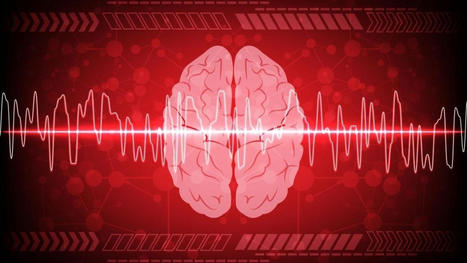

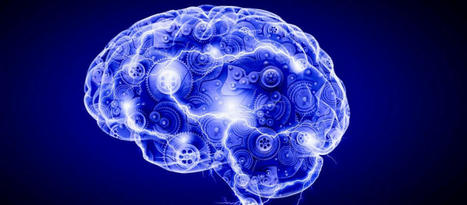
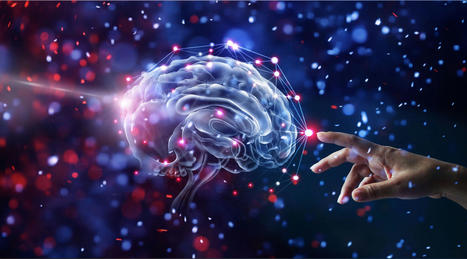
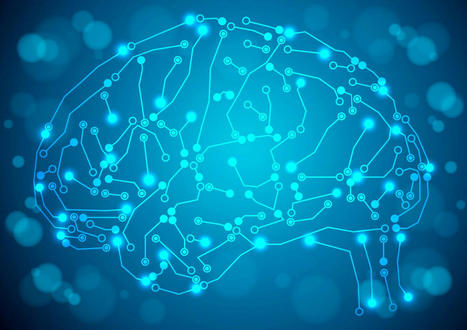
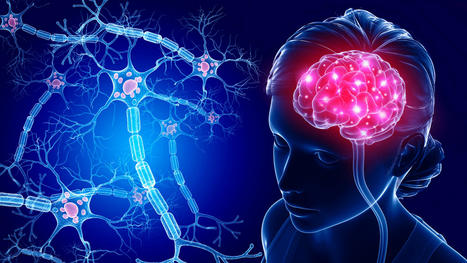
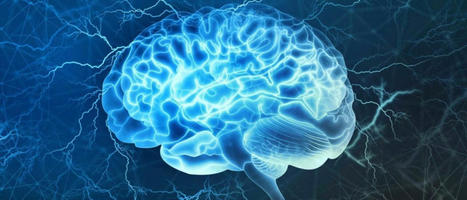

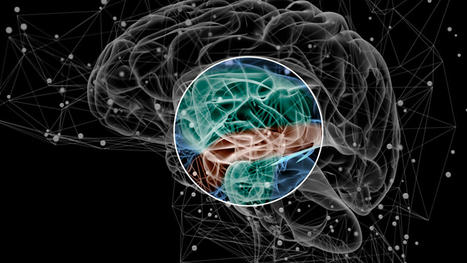
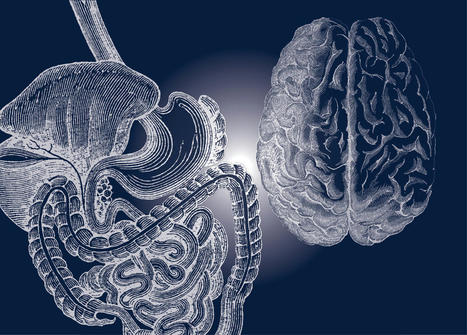



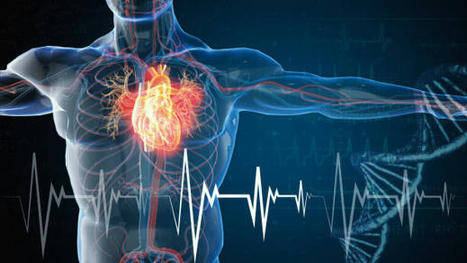
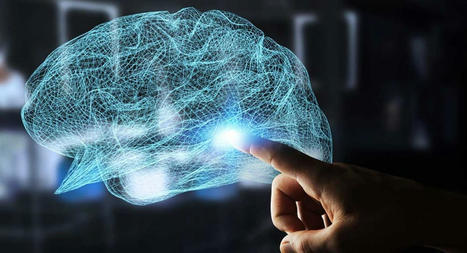
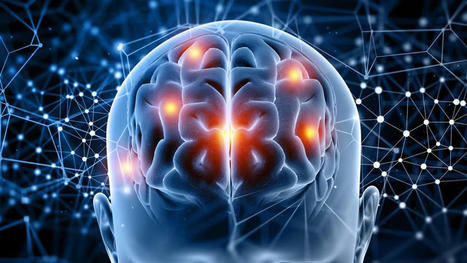



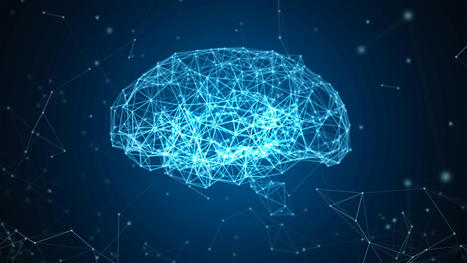
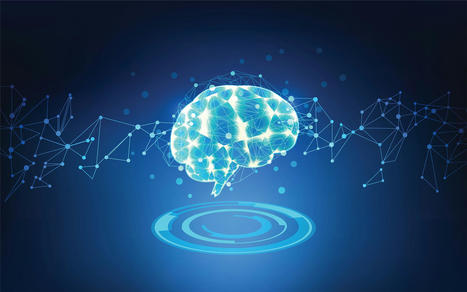




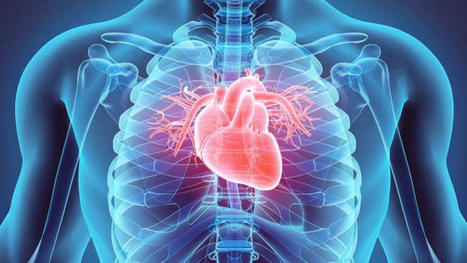





Dr. Jimenez gives an insightful look at how light therapy can provide beneficial results for brain disease, in this 2 part series. If you have any questions or concerns, please call Dr. Jimenez at 915-850-0900.